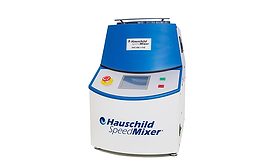Raw Materials and Chemicals
Last held in North America in 2008, the World Adhesive and Sealant Conference offers a unique opportunity for the global industry.
Read More
Raw Materials and Chemicals for Adhesives, Sealants, and Coatings
Though sourcing raw materials and chemicals is more difficult now than ever before, tools are available to help.
March 25, 2022
Top 5 News that Sticks
Readers Drawn to Acquisition of Ashland Performance Adhesives
Last week, news of a completed acquisition drew the most reader interest.
March 21, 2022
Case Study
Mixing Carbon Blacks
The combination of centrifugal forces acting in different planes enables an efficient mixing process for Orion Engineered Carbons.
March 21, 2022
Keep the info flowing with our eNewsletters!
Get the latest industry updates tailored your way.
JOIN TODAY!Copyright ©2025. All Rights Reserved BNP Media.
Design, CMS, Hosting & Web Development :: ePublishing










